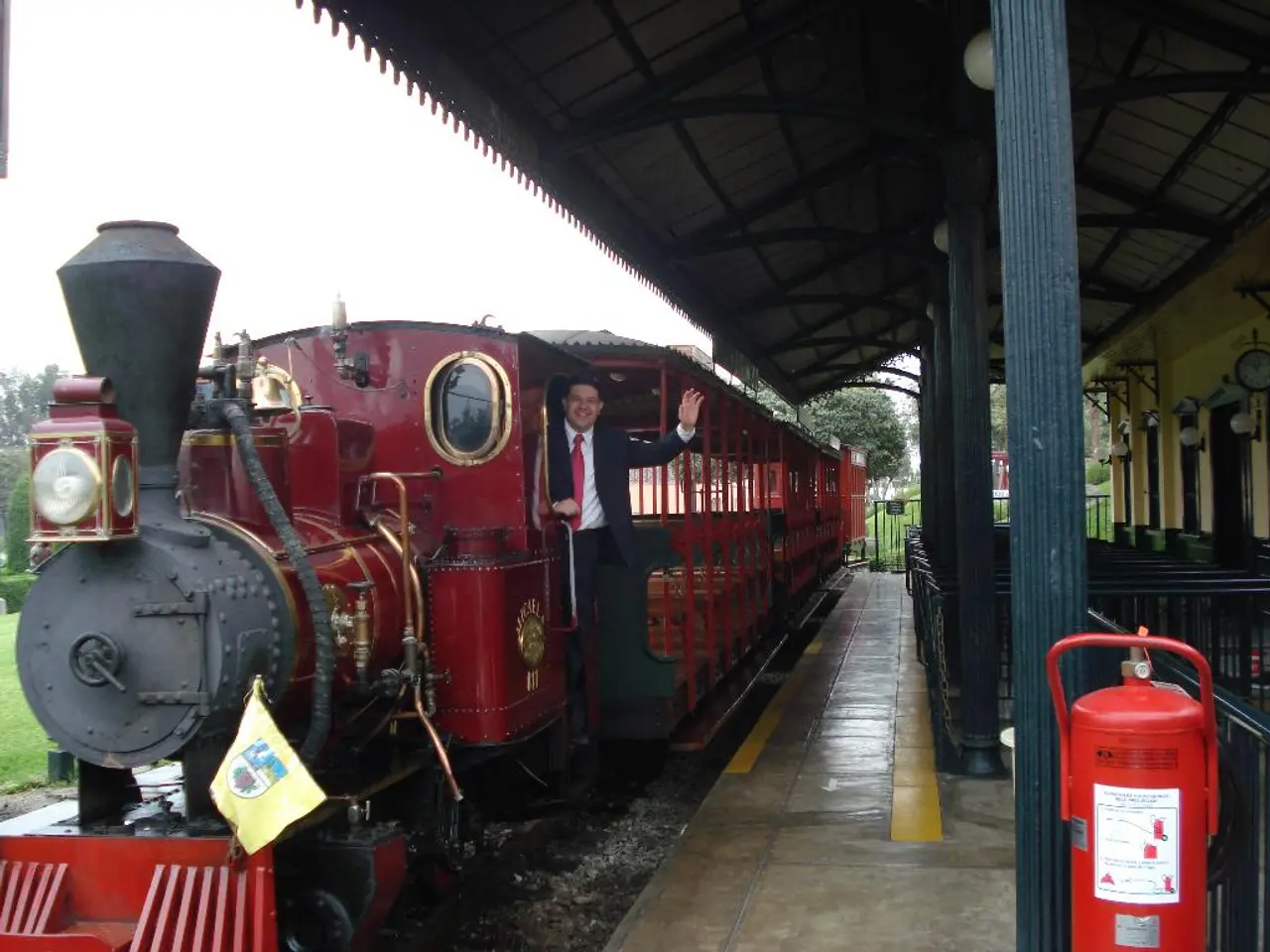Traintastrophes and Mishaps: A Look at Emergency Responder's Strategies for Catastrophes
In the quiet town of Riedlingen, a tragic event unfolded on the 27th of July when a regional train derailed, resulting in dozens of injuries and the loss of three lives. The aftermath of this disaster has been a testament to the resilience of the community and the emergency services personnel who responded.
Four group discussions were held in the following days, with approximately 120 personnel participating. These meetings served a dual purpose: to bring the operation to a close and to provide a platform for colleagues to share their experiences. The discussions were led by psychologist Robert Hohl, who is responsible for the psychological care of the fire brigade members in the Biberach district.
For Firefighter Gerhard Blank, with 40 years of service, the Riedlingen disaster was unlike anything he had ever experienced. The psychologist, Gerhard, was responsible for providing psychosocial emergency care for the emergency services on the night of the accident.
Charlotte Ziller, the District Fire Chief, has been involved with the fire department since she was 16 years old. She found the scene surreal and unlike anything she had experienced before. The disaster still haunts the firefighters, according to Charlotte.
The psychologist, Robert Hohl, advises seeking help early if the psyche is unable to process the impressions within the first few weeks after the accident. Over 90% of firefighters are volunteers, and they may see images that others might only see in a movie. This can be distressing for them, and the community is crucial in the process of dealing with the aftermath of a disaster.
In the past, after a heavy incident, firefighters would pat each other on the back, have a beer, and go home. Today, however, they deal with such catastrophes more professionally and more sensitively. They openly discuss their fears, and tears are allowed to flow. The task of caregivers on site is to listen, enable conversations, and endure silence.
Conversations are important after a disaster, especially when images cannot be shaken from the mind, sleep is disturbed, or emotional numbness sets in. Emergency services who have had time to mentally prepare for a disaster may find it easier to cope with the horrific impressions. Early professional help and support can help ensure that the impact of the disaster does not last as long.
Charlotte Ziller emphasizes the importance of psychosocial support for emergency services personnel. The community is a vital part of this support, providing a safe space for firefighters to process their emotions and begin the healing process. As we move forward, it is crucial that we continue to prioritize the mental health and well-being of our emergency services personnel, ensuring they have the resources they need to continue serving our communities with courage and compassion.
Read also:
- Understanding Hemorrhagic Gastroenteritis: Key Facts
- Stopping Osteoporosis Treatment: Timeline Considerations
- Tobacco industry's suggested changes on a legislative modification are disregarded by health journalists
- Expanded Community Health Involvement by CK Birla Hospitals, Jaipur, Maintained Through Consistent Outreach Programs Across Rajasthan




